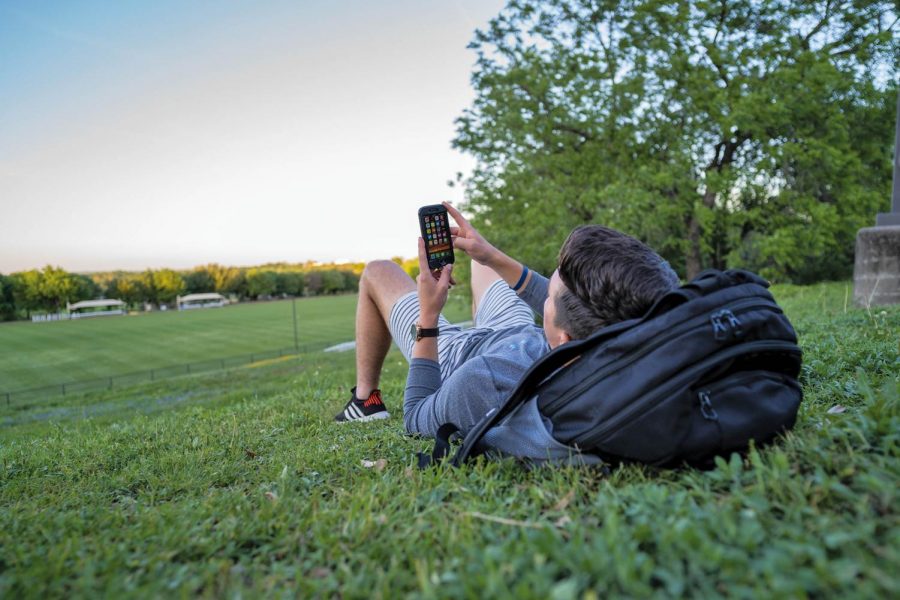St. Edward’s student lounges with his phone by the soccer field.
Technology proves beneficial to some, harmful to others
It is no surprise that social media has become an integral part of our lives. Apps like Facebook, Instagram and Twitter have given us easy ways to communicate and share information, but at what cost?
“It’s hard to tell what the long term effects of social media will be because it’s been around for a relatively short period of time. It’s going to be interesting,” professor Emily Barton, an assistant professor of behavioral neuroscience at St. Edward’s, said.
“Right now, we know that it’s become an ingrained habit. People need stimulation, which makes them feel like they have to repeatedly look at their screens,” Barton said. “In many cases, if people do not have access to their phones, they begin to feel disconnected. This can lead to people feeling anxious or depressed, which is the most concerning short term effect,” she added.
Other short term effects can be observed in intrapersonal and interpersonal relationships. Experts say that social media can negatively impact these relationships in ways we may not even realize.
“On photo sharing apps like Instagram, people are trying to present the best version of themselves, which can lead to a lot of internal comparison and negativity towards the self,” Barton said.
The idealization of romantic relationships on social media also poses challenges to users.
“People will compare their own truths and reality to what they see online, which can definitely lead to conflict within the relationship itself,” Barton said.
Though it’s difficult for some to keep the real world and digital world separate, others have found out how to maintain healthy relationships with social media.
“I used to not see a point in social media,” Genevieve Stunkard, an avid Instagram user and student at St. Edwards said.“I almost had this angst against it because so many people use it to promote a fake self image. Now I post whatever I want and don’t care if people like it or not.”
Though Stunkard doesn’t feel dependent on it now, she once had an internet addiction that left her feeling depressed and prevented her from having healthy social interactions with people. She now uses her Instagram account to promote her art.
“Being through that really helped me create boundaries for myself with the internet. I’m in a really healthy place with it now,” Stunkard said. “I think people need to find the balance between consuming content and sharing content they create”
Do you feel like you have an unhealthy relationship with social media? Next time you’re scrolling, keep these tips by Washington University professor Tim Bono in mind:
- Don’t open up your social media if you’re already in a negative state of mind.
- Keep track of how often you use it and how you feel right after you’re done.
- Don’t look for external gratification. Instead, replace it with things you can control like exercise, cooking, or spending time with friends.
- Realize that social media is not real life. Everyone is choosing exactly how to present their own story.
